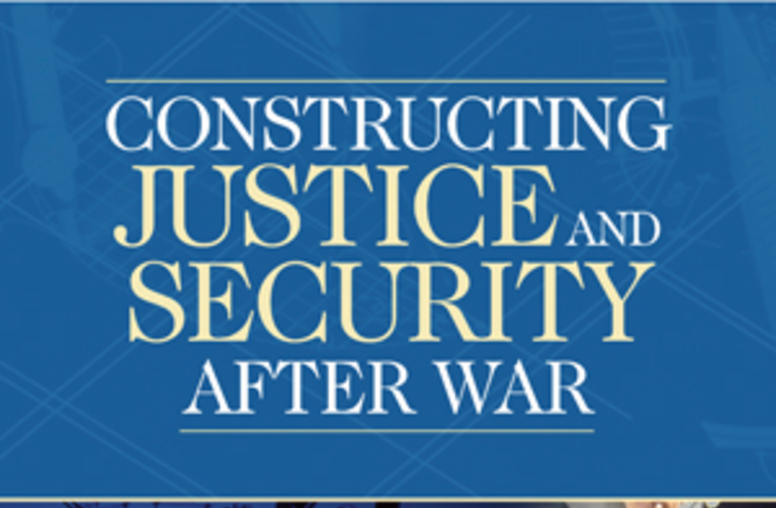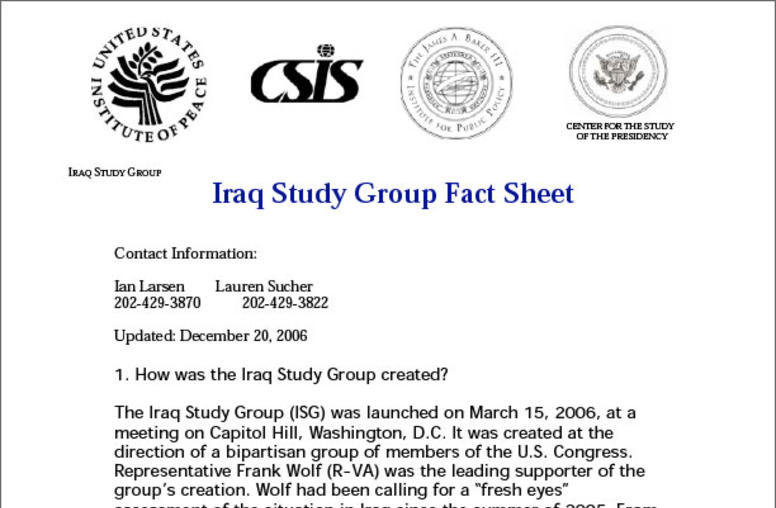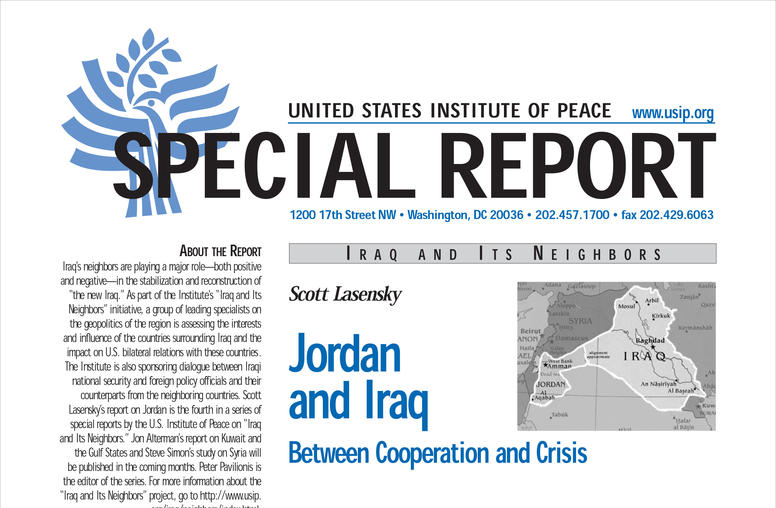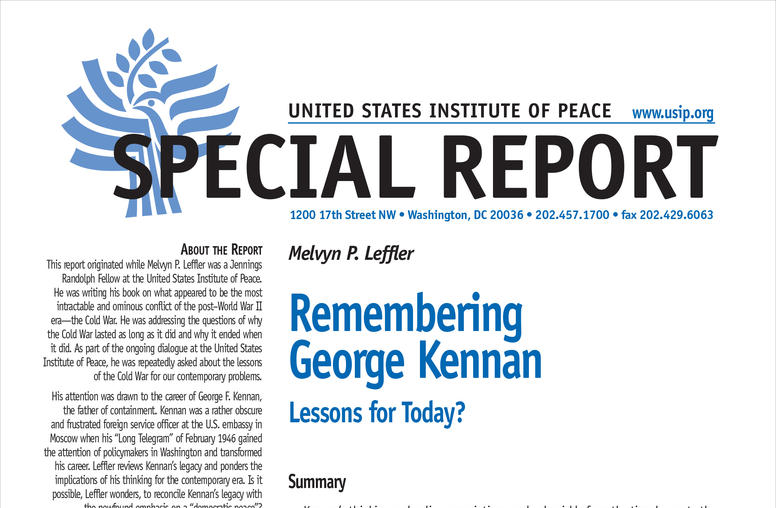Publications
Articles, publications, books, tools and multimedia features from the U.S. Institute of Peace provide the latest news, analysis, research findings, practitioner guides and reports, all related to the conflict zones and issues that are at the center of the Institute’s work to prevent and reduce violent conflict.

Constructing Justice and Security After War
In Constructing Justice and Security after War, the distinguished contributors—including scholars, criminal justice practitioners, and former senior officials of international missions—examine the experiences of countries that have recently undergone transitions from conflict with significant international involvement. The volume offers generalizations based on careful comparisons of justice and security reforms in some of the most prominent and successful cases of transitions from war of the...

Iraq Study Group Fact Sheet
The Iraq Study Group (ISG) was launched on March 15, 2006, at a meeting on Capitol Hill, Washington, D.C. It was created at the direction of a bipartisan group of members of the U.S. Congress. Representative Frank Wolf (R-VA) was the leading supporter of the group’s creation. Wolf had been calling for a “fresh eyes” assessment of the situation in Iraq since the summer of 2005. From its inception, the ISG was designed to be bipartisan, and the initiative attracted broad, bipartisan support among members of the House and Senate.
Iraq Study Group Report
In our efforts to make this report available to all, the report may be downloaded, reproduced, and translated free of charge. The United States Institute of Peace would appreciate being informed

Security Sector Reform in Nepal: The Role of Civil Society
What is the role of civil society in Nepal? In the wake of ongoing peace negotiations that resulted in the signing of a peace agreement, USIP sponsored a two day program in Nepal to discuss the concepts of Security Sector Reform, Disarmament, Demobilization, and Reintegration, and how they fit within the context of Nepal.
Troubles on the Pakistan-Afghanistan Border
At dawn on October 30, 2006, two missile strikes rocked the Zia-ul-Uloom madrassah in Chinagai, a border village in the Bajour province of Pakistan's Federally Administered Tribal Areas (FATA). This incident, and its aftermath, raises broader questions regarding the stability of the tribal areas along the Pakistan-Afghanistan border.
The Future of Kosovo's Security Sector
With talks on the future status of Kosovo well underway, the international community must prioritize security sector reform. Stability in the region will hinge on Kosovo's ability to maintain security for all its citizens. How can the Kosovo Internal Security Sector Review (ISSR) help Kosovo establish its internal security apparatus?
Liberia's Peacebuilding Effort: One Year after Transition
USIP's Liberia Working Group charts the progress Liberia has made ovoer the last year in consolidating peace and fostering reconciliation.
Central African Republic, Chad, and Sudan: Triangle of Instability?
United Nations Under Secretary for Humanitarian Affairs Jan Egeland warned last month that the crises in Darfur, Chad, and Central African Republic (CAR) are intimately linked and could lead to a dangerous regional crisis. What are the factors behind the rebellions within CAR and Chad, and what is their relationship to the Darfur conflict?

Remembering George Kennan: Lessons for Today?
George F. Kennan, the father of containment, was a rather obscure and frustrated foreign service officer at the U.S. embassy in Moscow when his "Long Telegram" of February 1946 gained the attention of policymakers in Washington and transformed his career. What is Kennan’s legacy and the implications of his thinking for the contemporary era? Is it possible to reconcile Kennan’s legacy with the newfound emphasis on a "democratic peace?"